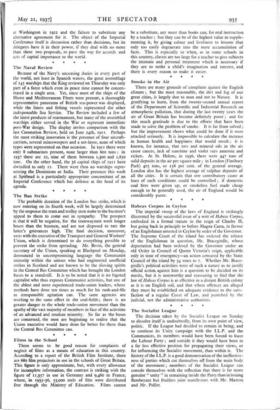Habeas Corpus in Ceylon The imperial sweep of the laws
of England is strikingly illustrated by the successful issue of a writ of Habeas Corpus, embodied in a formal statute in the reign of Charles II, but going back in principle to before Magna Carta, in favour of an Englishman arrested in Ceylon by order of the Governor. The Supreme Court of the island has ordered the release of the Englishman in question, Mr. Bracegirdle, whose deportation had been ordered by the Governor under an old Order in Council of Queen Victoria's reign, applicable only in time of emergency—an action censured by the State Council of the island by 34 votes to 7. Whether Mr. Brace- girdle's political activities were of such a nature as to justify official action against him is a question to be decided on its merits, but it is noteworthy and reassuring to find that the law of Habeas Corpus is as effective in a distant British colony as it is on English soil, and that where offences are alleged they must be established on adequate evidence to the satis- faction of a regular Court of Law, and punished by the judicial, not the administrative authorities.
* * * *














































 Previous page
Previous page